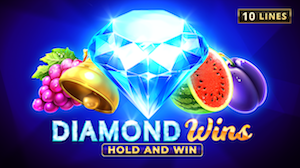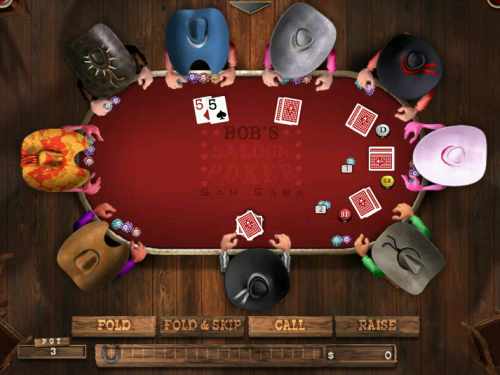Roulette Html5
What's the best way to emulate a spinning roulette wheel in HTML5? The wheel spinning should be controllable by some input (i.e., speed of spinning based on some user input). The wheel labels should blur as the wheel spins fast, but as the spinning slows, the labels on the wheel become more and more readable. This casino table game is just Jasmine Roulette as exciting to play online. Roulette requires no skill to play, although it is helpful to learn the best bets to make. Live dealer roulette is the most exciting game to play on online casinos, but bettors can find other roulette games to play online, too.
Gambling Simulation
A simple gambling simulation program is easy to write. Even a simple program is fun to play with, but a more sophisticated program is more fun.
Purchase a roulette layout and wheel. The roulette layout should be 36 inches by 72 inches. Felt roulette layouts can be found in game and billiard stores as well as online at the link below. Roulette wheels can be purchased online at the link below. Roulette wheels vary drastically in quality and price. The point-roulettes for which a circle rolls on a line or on another circle, are known as cycloidal curves. Some authors name the roulette a spirographic curve. The same curves can be defined as a glissette 3): as the locus of a point or a envelope of a line which slides between two given curves C 1 and C 2. An wide-known example of a glissette is the astroid.
The Internet now offers the possibility of gambling on-line, with 'real money'. The software for this system is quite sophisticated. There are several issues/problems involved:
- What are the rules of the game being simulated (the exact rules)?
- How can the game be represented inside the computer?
- How can the user-interface be created (start with a highly simplified version)?
- How can the game be connected to an E-cash system?
- How can a larger casino system be created from many games?
- How can multi-player games be created using a server?
- How can the simulation be made more realistic, to increase the fun (animation, 3D, sounds)?
Top-Level Design (tasks)
Here is a list of tasks to be performed by an on-line roulette simulation:
- Log-in (user identifies themselves)
- Give user 'chips' (money) to start with
- User places bet(s)
- Spin the wheel
- video simulation of spinning wheel (happens at the client)
- generate random result(s) (happens at the server)
- coordinate server and client by transmitting data - Decide whether the user wins or loses
- Pay winnings or deduct losses
Low-Level Design (modules)
Here is a list of useful modules to solve problems in an on-line roulette program:
- User-ID verification
- Roulette-wheel animation
- Matching red/black to numbers
- Secure communication system for client/server exchanges
- Background graphics and sound routines (e.g. chips 'clunking' onto the table)
- E-payment system

Useful Standard Functions (Java)
Random Numbers: int number = rand(0,36) -- choose a random number between 1 and 36
Grouping Numbers: group = number / 3 -- integer division, returns a whole number result
Even or Odd : result = group % 2 -- this result is 0 for even, 1 for odd numbers
importjava.awt.*;
publicclassRouletteextendsEasyApp
{publicstaticvoidmain(String[]args)
{
newRoulette();
}
LabellMoney=addLabel('Money',40,40,60,30,this);
TextFieldtMoney=addTextField(',100,40,100,30,this);
ButtonbBet=addButton('Bet',40,70,80,30,this);
ButtonbSpin=addButton('Spin',120,70,80,30,this);
TextFieldtBet=addTextField(',40,100,80,40,this);
TextFieldtChoice=addTextField(',40,140,80,40,this);
TextFieldtNumber=addTextField(',120,100,80,80,this);
intmoney=1000;
intbet=0;
intbetting=0;
Stringchoice=';
publicvoidactions(Objectsource,Stringcommand)
{
if(sourcebBet)
{makeBet();}
elseif(sourcebSpin)
{spin();}
}
publicRoulette()
{
setTitle('Raging Roulette');
setSize(250,200);
setBackground(Color.green);
tNumber.setFont(newFont('Arial',0,50));
tNumber.setForeground(Color.white);
tNumber.setBackground(Color.green);
tBet.setFont(newFont('Arial',0,30));
tChoice.setFont(newFont('Arial',0,30));
tMoney.setFont(newFont('Arial',0,16));
tMoney.setText(money+');
}
publicvoidmakeBet()
{
do
{
betting=inputInt('How much do you want to bet?');
}while(betting<0 betting>money);
bet=betting;
choice=input('Betting on : Red, Black, or a Number');
tBet.setText(betting+');
tChoice.setText(choice);
}
publicintrand(intlowest,inthighest)
{
return(int)(Math.floor(Math.random()*(highest-lowest+1)+lowest));
}
publicvoidspin()
{
longstart=System.currentTimeMillis();
do
{
intnum=rand(0,36);
tNumber.setText(num+');
if(num0)
{tNumber.setBackground(Color.green);}
elseif(((num-1)/3)%20)
{tNumber.setBackground(Color.red);}
else
{tNumber.setBackground(Color.black);}
repaint();
}while(System.currentTimeMillis()-start<3000);
money=money+checkWinner();
tMoney.setText(money+');
}
publicintcheckWinner()
{
if((tNumber.getBackground()Color.red)&&(tChoice.getText().equals('Red')))
{returnbet;}
elseif((tNumber.getBackground()Color.black)&&(tChoice.getText().equals('Black')))
{returnbet;}
elseif(tNumber.getText().equals(tChoice.getText()))
{return36*bet;}
else
{return-bet;}
}
publicvoidpause(longmillis)
{
longstart=System.currentTimeMillis();
do
{
}while(System.currentTimeMillis()-start<millis);
}
}
Roulette Html5 Play
Class Project
The prototype Raging Roulette contains lots of ideas which are useful for other gambling simulations. Slot machines, dice, card games, and any other gambling game can be simulated in a similar fashion.
Our class project will concentrate on multi-player games rather than casino games. A multi-player game has several players, all equal, and the winnings/losses are moved from player to player. There is no 'house'. This is more like how real people play games with friends - for example, card games like poker.
Our project is to build several multi-player gambling games. The players will exchange V-money (virtual money), kept in a virtual bank (managed by the teacher).
Rather than implementing a standard game like roulette or poker, students will design their own gambling games. Here is an example:
Divide and Conquer - an Invented Game
Each player places a bet and chooses a number between 2 and 12. The numbers and bets remain secret from the other players. The minimum bet permitted is 50 dm. The total of all the bets forms a 'pot'. Two dice are then rolled. If one of the players guessed the result correctly, he/she wins the entire pot. If more than one player bet on that number, the player who bet the most money wins the entire pot - the others lose. If there is a tie, they split the pot. If nobody bet on that number, the money remains in the pot for the next game.
Example Games ( Assume there are three players - Alice, Bob, Carla )

Alice | Bob | Carla | Pot | Dice Roll | Winner |
50 dm on #7 | 100 dm on #6 | 50 dm on #8 | 200 | #7 | Alice |
50 dm on #7 | 100 dm on #7 | 50 dm on #8 | 200 | #7 | Bob |
200 dm on #7 | 100 dm on #6 | 50 dm on #8 | 350 | #9 | No Winner |
200 dm on #7 | 150 dm on #7 | 50 dm on #8 | 400+350 | #8 | Carla |
Project Organization
Roulette Html5 Games
Each student creates a game (specifies the rules) and writes programs to implement the on-line version. This includes a server program which generates the random results and makes payments to winners, as well as the client program which runs on the user's computer and takes bets and displays results. To prevent any cheating (secret 'lucky numbers'), the program code must remain public (open source). Also, the authors cannot win any V-money playing their own games.
Roulette Canvas Html5
The teacher will implement the V-cash system. This will include virtual salaries for all students on a daily basis, as well as bonuses for outstanding programs or clever ideas. (Absent students forfeit their daily salary.)
The server programs must be designed to interface properly with the V-cash system, so that winnings can be correctly posted to student accounts. Incorrect payments may result in fines for the programmers.
Development Steps
- Try out the Raging Roulette simulation
- Invent a new game, based on dice, cards, spinners, or some other random
- Write a stand-alone version, like Raging Roulette, including a simple user-interface, the random-result generator, and simplified pay-off system (without an actual bank-file)
- Connect to server-based E-cash and convert payoff system to 'real' E-cash (the teacher will make the E-cash system
- Integrate your program into the Our-Casino system
- Improve the user-interface to be more realistic
- Refactor into a multi-player, client-server game